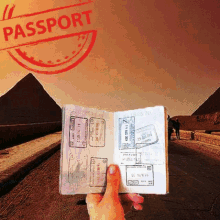
Travel Advisories
A Travel Advisory is a report from the U.S. Department of State that describes the risks and recommended precautions .

KNOW BEFORE YOU GO
✈️ Before You Go: Preparation Tips
-
Check Entry Requirements:
Verify visa requirements, vaccination rules, and entry forms on official government websites before booking your flight.-
U.S. State Department – Travel Advisories
-
CDC – Traveler’s Health
-
-
Travel Insurance:
Always purchase comprehensive travel insurance covering medical emergencies, cancellations, and theft. -
Make Copies of Documents:
Keep digital and printed copies of your passport, visa, travel insurance, and itinerary in a separate location. -
Register Your Trip (U.S. citizens):
Enroll in the STEP Program to receive safety alerts and make it easier for the embassy to contact you in emergencies.
🌐 Useful Travel Apps
-
Google Maps / Maps.me: Offline navigation
-
XE Currency Converter: Real-time exchange rates
-
TripIt: Organize itineraries
-
Google Translate: Instant text and speech translation
-
Smart Traveler (U.S. State Dept app): Safety alerts and advisories
🧭 If Something Goes Wrong
-
Report theft or loss immediately to local police — get a written report for insurance.
-
Contact your embassy if your passport is lost or stolen.
-
Stay calm and polite in all interactions — respect goes a long way in foreign countries.
🕊️ Travel Responsibly
-
Respect local cultures, traditions, and dress codes.
-
Support local businesses and artisans.
-
Avoid single-use plastics when possible.
-
Be mindful of wildlife and natural habitats.
🏥 Health & Wellness Abroad
-
Check if your health insurance covers international travel.
-
Know where the nearest hospitals or clinics are — your hotel can help with this.
-
Stay hydrated, especially in tropical climates.
-
Be cautious with street food; eat where locals eat and where food is freshly cooked.
-
Use bottled water if tap water isn’t safe to drink.
🚦Safety Tips While Traveling
(General Tips Anywhere You Go)
-
Stay aware of your surroundings and trust your instincts.
-
Avoid displaying expensive jewelry, electronics, or large amounts of cash.
-
Use official taxis, rideshare apps, or hotel-arranged transport.
-
Don’t share personal details or travel plans publicly on social media.
-
Keep valuables in your hotel safe when not in use.
-
Local Travel
(Within Your Country)
-
Check weather alerts or road conditions before driving.
-
Keep emergency roadside assistance numbers handy (AAA in the U.S.: 1-800-222-4357).
-
Inform family or friends of your travel route and expected arrival time.
-
Carry a refillable water bottle and snacks for long drives or hikes.
International Travel
-
Know the local laws and customs — what’s acceptable in one country might be illegal in another.
-
Avoid political demonstrations or protests.
-
Learn a few local phrases like “Help,” “Police,” “Doctor,” and “Thank you.”
-
Always carry a photocopy of your passport; keep the original locked away securely.
💡 Smart Travel Tips
-
Money: Use ATMs inside banks, not on the street. Notify your bank before traveling.
-
Wi-Fi: Avoid entering passwords or banking info on public Wi-Fi. Use a VPN when possible.
-
Transportation: Use reputable car rentals or ride apps (Uber, Bolt, or local equivalents).
-
Accommodations: Read verified reviews and confirm your booking directly with the hotel or host before arriving.
-
Emergency Phrase Card: Keep a small card in the local language stating allergies or medical conditions.
☎️ Important Numbers
🌐U.S. Travelers (While Abroad):
-
U.S. Embassy or Consulate: Find your location here.
-
911 (Emergency): Many countries use different numbers, such as:
-
U.K.: 999 or 112
-
France: 112 or 15 (medical), 17 (police)
-
Mexico: 911
-
Canada: 911
-
Australia: 000
-
Japan: 110 (police), 119 (ambulance/fire)
-
General Global Assistance:
-
Global 24-Hour Emergency Line (for U.S. travelers): +1 202-501-4444
-
Credit Card Emergency (lost/stolen):
-
Visa: +1-303-967-1096
-
MasterCard: +1-636-722-7111
-
American Express: +1-336-393-1111
-
.jpeg)
.png)


.jpeg)
.webp)
